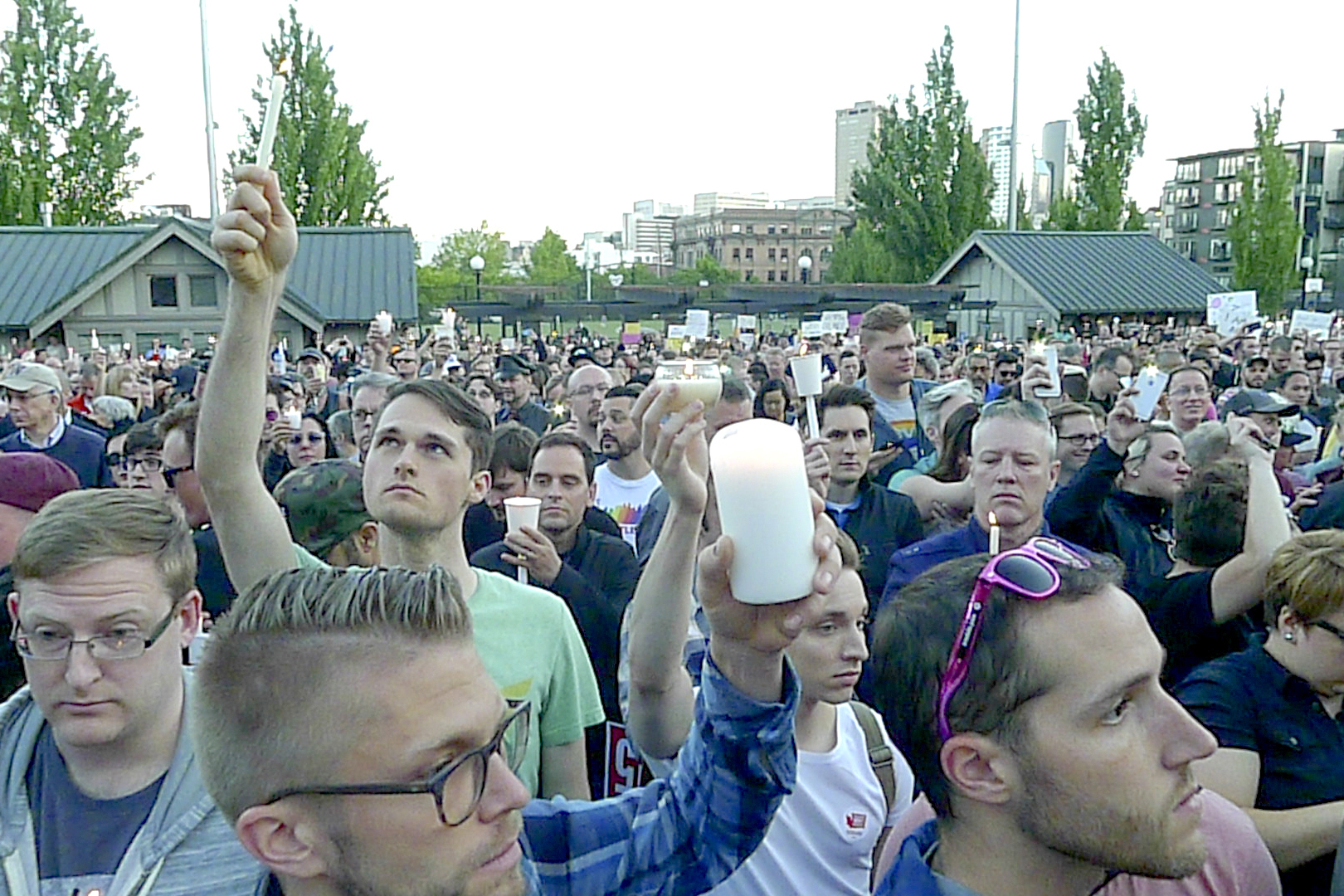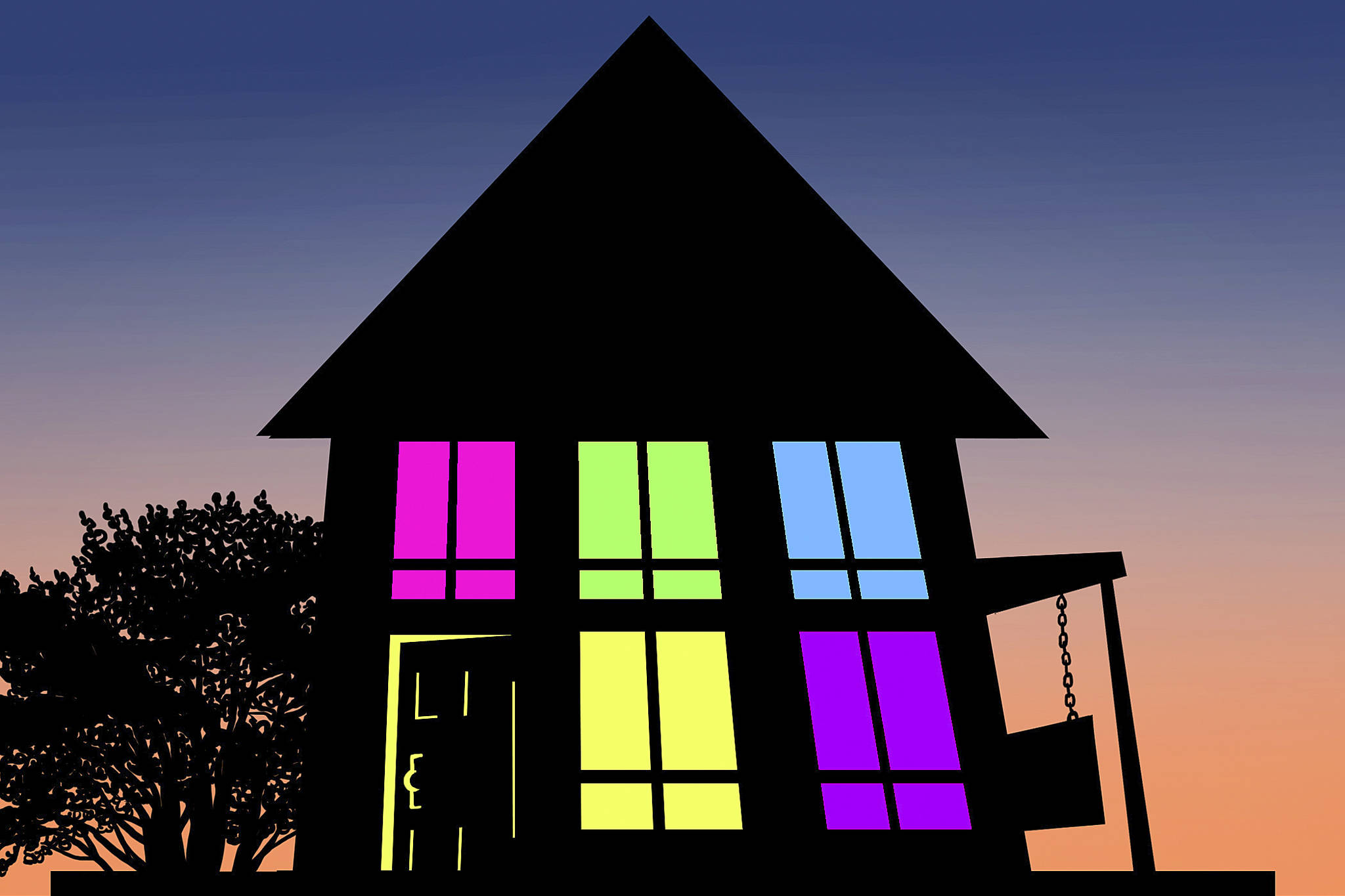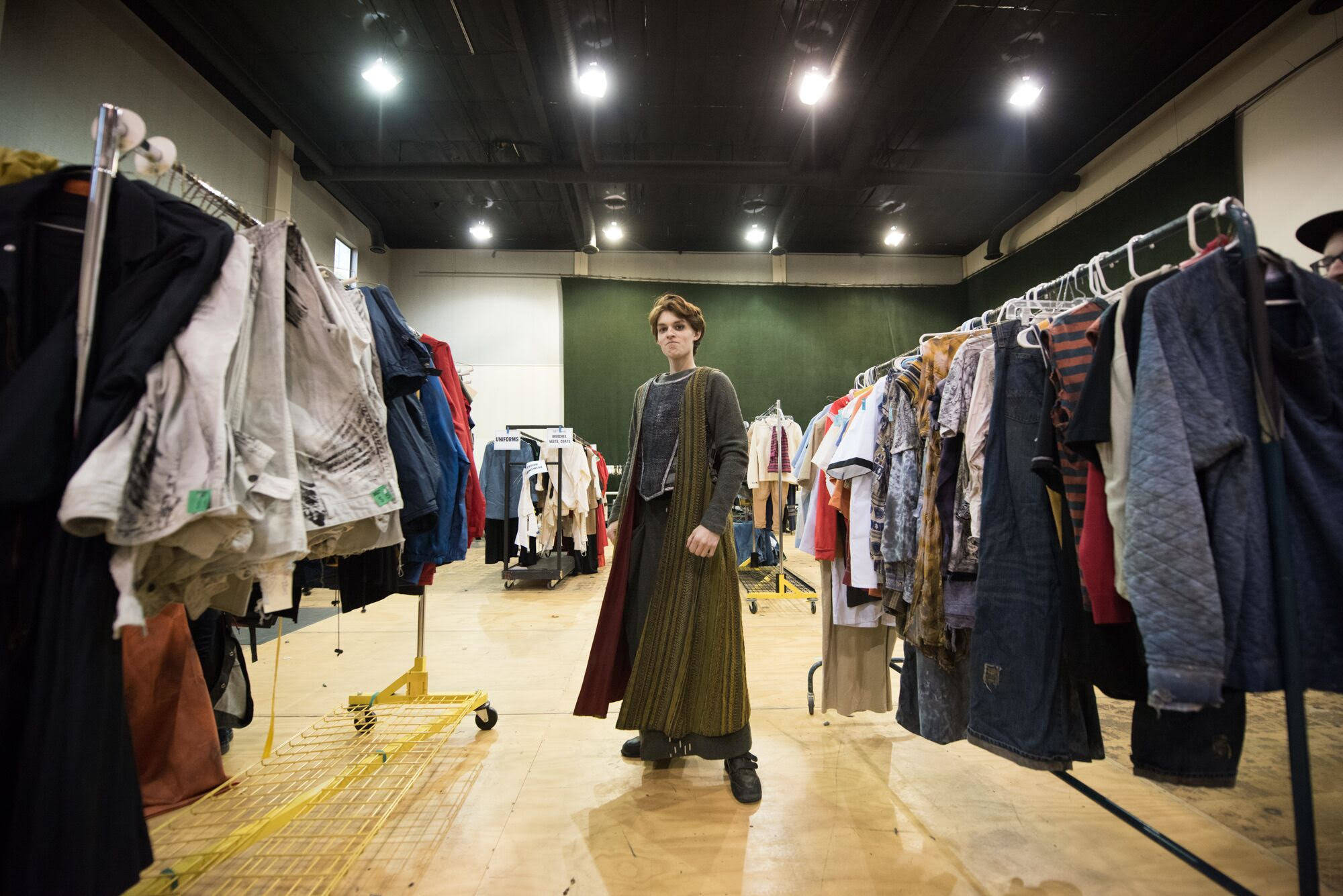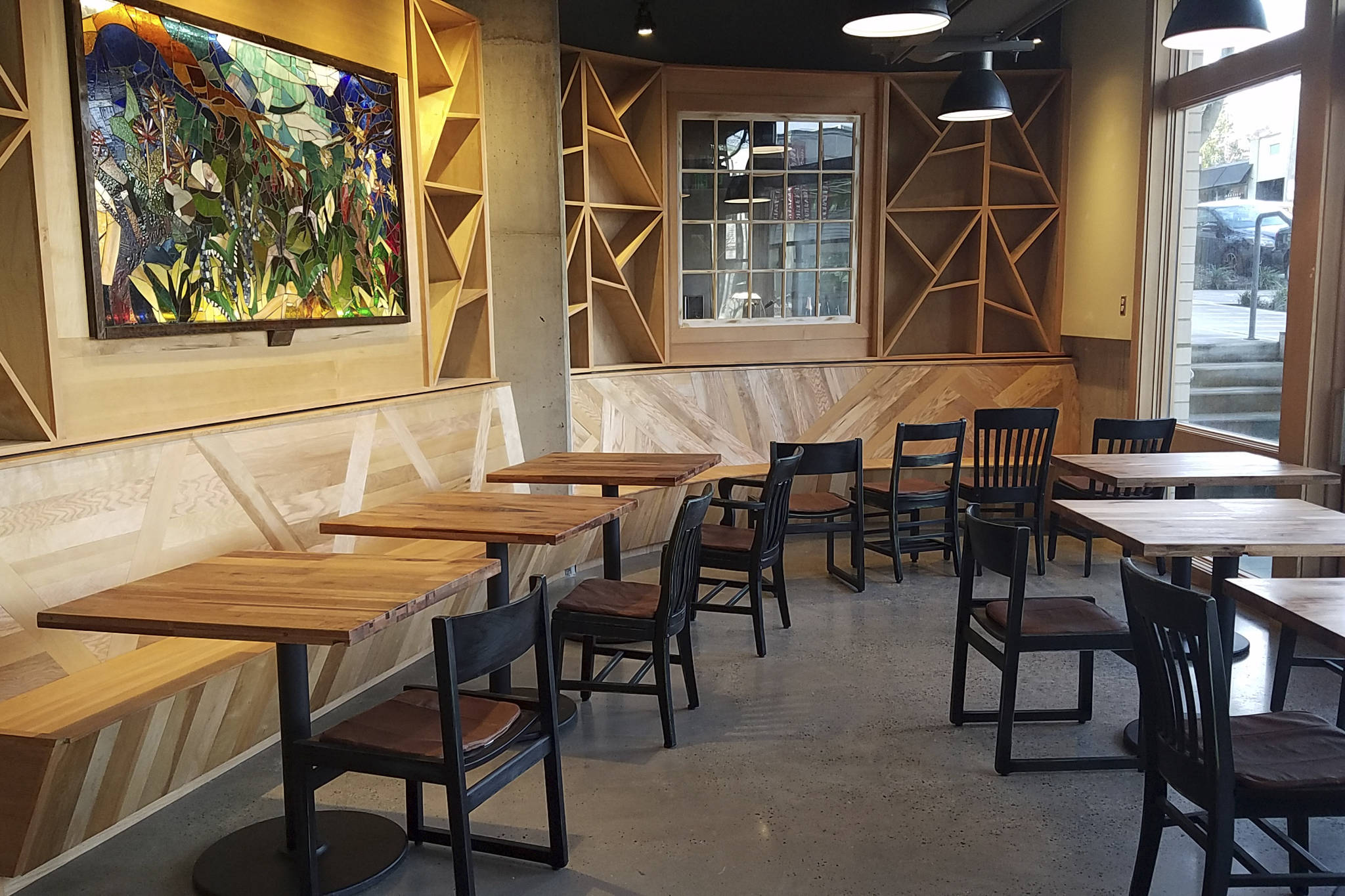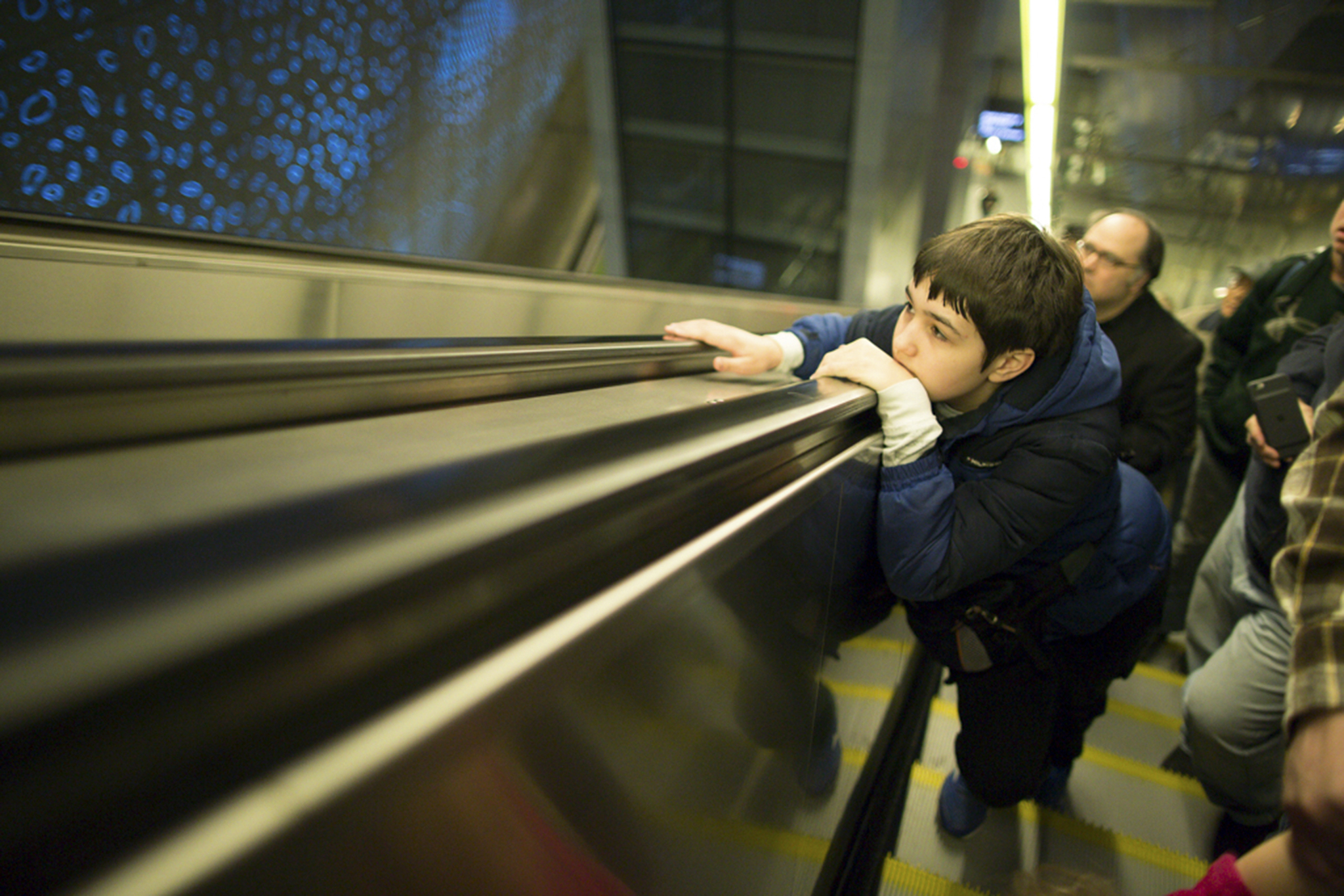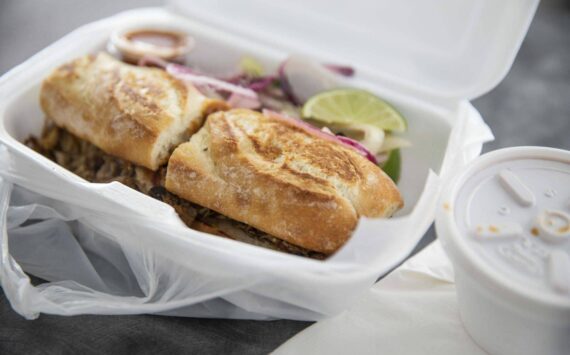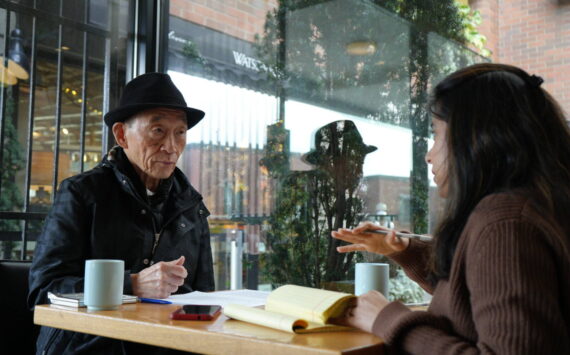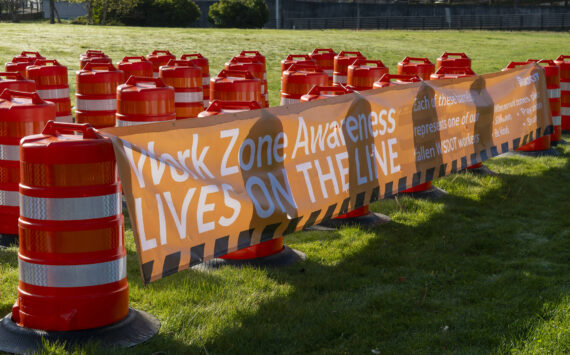On Capitol Hill on Sunday night, hundreds of people gathered at Cal Anderson Park to count to 50.
At that time, that’s how many people were believed dead in the massacre at the Pulse nightclub in Orlando early Sunday morning, one of the worst mass shootings in American history. The victims were shot because they were gay. Exhausted, sad, and defiant, Seattle’s LGBTQ community and its allies gathered to grieve together in the park.
But before and after the vigil, which featured remarks from Mayor Ed Murray and Gov. Jay Inslee, many of those grieving in Seattle weren’t found at Cal Anderson; they were in bars very similar to the one targeted in Orlando.
Gay bars are the home of the gay-rights movement, which began with a riot at one, the Stonewall Inn in New York City. They are sanctuaries for a community that for many years existed only inside those bars. The terrorist attack on Pulse—Orlando’s equivalent of Neighbours or R Place—struck one of the essential parts of the LGBTQ experience in the United States.
At Neighbours, which has been targeted by several arson attacks in recent years, I spoke to patrons starting to filter in for the club’s weekly Noche Latino. Eerily, Pulse also hosted a mostly Latinx crowd the night of the shooting.
I asked the night’s longtime DJ, Luis Viquez, if people were staying away. He wasn’t sure. “I couldn’t help but look at this dance floor and think ‘What if this happened here?’,” he said. He hoped the club would fill up, but he understood why some might stay home. “The issue is way bigger than a place or a specific incident.” He cited the United States’ epidemic of mass shootings, and queer people of color’s constant, low-level fear for their safety as reasons to stay home.
Still, said Viquez, “We come here to have fun, to be united. This is a gathering place. We just cannot afford to stay home. I’m not going to change my behavior.”
At Wildrose, Seattle’s only lesbian bar, Meran Hill took a drag off her cigarette. “If [the shooting] happened here, at least five to 10 people who I personally know would have been shot,” said Hill. The usual barhoppers, LGBTQ people, street kids, and gutter punks walked by or smoked on Pike Street’s sidewalks. The occasional pungent cloud of weed smoke drifted by.
Hill paused periodically to greet friends or pet their dogs. Our depressing conversation about the previous night’s horrifying antigay violence, and Capitol Hill’s brushes with the same, made these simple moments of neighborliness precious.
Seattle’s gayborhood, Capitol Hill, is not what it was one, 10, or 20 years ago. We’ve heard that anti-LGBTQ hate crimes are on the rise, that the queer community is being displaced by high rent, and that the businesses that sustain Seattle’s rich gay tradition are being shuttered to make room for businesses that cater to a straighter, richer clientele.
The Wildrose’s regulars had filled the bar throughout the day. It was the natural place to go, especially before plans for the vigil in Cal Anderson Park became public. According to Shelly Brothers, one of the bar’s owners, most of her regulars came in.
Brothers is clearly at home outside her bar. She’s a familiar sight to anyone who’s walked down Pike at night: short, with close-cut blonde bangs and a steady manner. She greeted around half the people going into the bar like a big sister or a cool aunt, but she was wary. She sounded tired. It had been a long day, and the neighborhood is changing.
“There’s a lot of stuff that didn’t used to go on that goes on here now. And there’s more and more guns. I think that’s the problem,” she said.
She bought the bar metal-detector wands on Sunday to search patrons for guns. Brothers explained that the gun-violence epidemic and a worsening climate for queer people forced her hand.
It’s not the first time she has had to step up security at the bar. Brothers was hand-searching bags as we talked; she said that Wildrose and other gay bars on Capitol Hill were threatened with a ricin attack several years ago. She also says that as Capitol Hill has gentrified and become a popular destination for mainstream partiers, passersby will shout antigay slurs at her. Brothers is worried that it will keep getting worse.
Back at Neighbours, I talked to Brian while he was waiting to order a drink—shouted to, really, as a house remix of “I Ran” by Flock of Seagulls boomed loudly around us. He was surprisingly stoic.
“I’m from Florida. I just moved here,” he said. “I had a friend that was killed there. I’m from Sarasota, but I have friends who were in Orlando last night.”
I asked him why he’d come to Neighbours. “Just out having fun. I talked to all my friends today, back in Orlando and Florida. We had our little cry moment, but it’s … ” He paused. “You move on beyond that.”
